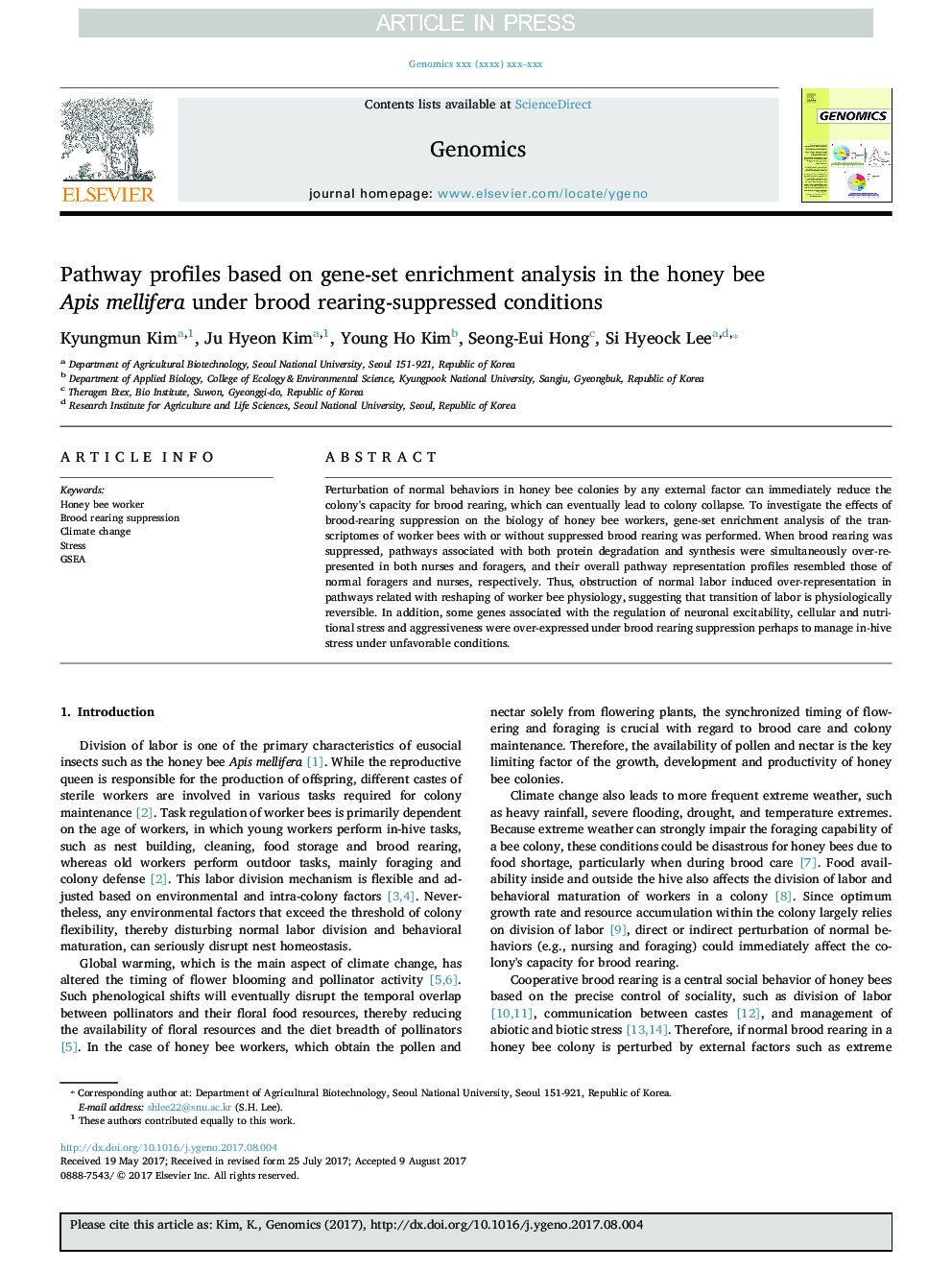| Article ID | Journal | Published Year | Pages | File Type |
|---|---|---|---|---|
| 8646343 | Genomics | 2018 | 7 Pages |
Abstract
Perturbation of normal behaviors in honey bee colonies by any external factor can immediately reduce the colony's capacity for brood rearing, which can eventually lead to colony collapse. To investigate the effects of brood-rearing suppression on the biology of honey bee workers, gene-set enrichment analysis of the transcriptomes of worker bees with or without suppressed brood rearing was performed. When brood rearing was suppressed, pathways associated with both protein degradation and synthesis were simultaneously over-represented in both nurses and foragers, and their overall pathway representation profiles resembled those of normal foragers and nurses, respectively. Thus, obstruction of normal labor induced over-representation in pathways related with reshaping of worker bee physiology, suggesting that transition of labor is physiologically reversible. In addition, some genes associated with the regulation of neuronal excitability, cellular and nutritional stress and aggressiveness were over-expressed under brood rearing suppression perhaps to manage in-hive stress under unfavorable conditions.
Keywords
Related Topics
Life Sciences
Biochemistry, Genetics and Molecular Biology
Genetics
Authors
Kyungmun Kim, Ju Hyeon Kim, Young Ho Kim, Seong-Eui Hong, Si Hyeock Lee,
